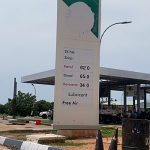The widening gap between the demand and supply of dollars in the banks and at the parallel market has continued to worsen the value of the naira, news correspondents have revealed.
In less than three weeks, the naira lost N100 after sliding from 860/$ to 960/$ at the parallel market as of Friday.
Before the Central Bank of Nigeria enabled the free float of the naira against other global currencies in June, the naira had traded at 471/$ at the Investor & Exporter window.
However, on June 13, a day after the regulator floated the local currency, the naira rose to 664/$ the next day.
However, the naira which traded in a close margin at both the official I&E window and parallel market soon began to witness serious volatility in the black market.
After crossing the N900/dollar ceiling at the parallel market last week, the local currency tumbled to 925/dollar in Lagos.
On Friday, the naira reached a high of 799/$ before closing at 740.60/$ at the I&E forex window. However, at the parallel market, the naira closed at 930/dollar in Lagos and 960/$ in Abuja at the parallel market.
The development came as the dollar shortage hits banks with several lenders complaining of not having enough greenback to meet customers’ demand.
At the parallel market, currency dealers also complained of dollar shortage.
Bank officials said the CBN removal of cash deposit limits on domiciliary accounts in June had led to the repatriation of funds through the banks.
As a result, he said the demand for the dollar had outweighed the supply significantly.
“Some of the dollars are being repatriated through the banks but the demand is still higher than supply because everyone is still sourcing for dollar for imports, PTA, BTA, others,” an official of a lender, who chose to speak on condition of anonymity because he was not authorised to speak on the matter, said,
“Nigerians are still hoarding dollar, customers are still hoarding FX because they don’t trust the policy. Banks are not getting forex supply from the CBN regularly like before,” he added.
Also, an official of tier-1 bank, who pleaded anonymity, said, “Before, the banks used to get dollar from the CBN every week but now, it has reduced drastically; we have not been getting again. Banks are sourcing for forex everywhere. The banks don’t have enough. We have not been getting supply from the CBN for weeks now.”
The President, Association of Bureau De Change Operators of Nigeria, Aminu Gwadabe, in a chat with our correspondent, said liquidity squeeze in the FX market had continued to put the naira under heavy attack from speculators.
He said, “The dwindling supplies in the I&E window shifted the demand to the parallel market where volatility and spikes is most pervasive. The entire forex market is plagued by liquidity shortages.
“The banks, as a result of the supply shortages, are limiting their available position for the financing of visible letters of credit and abandoning the invisible request like PTA, school fees, medicals of their clients and inadvertently adding more pressure in the parallel market.”
He added, “As it is, most licensed BDCs due to their demand for KYC requirements have lost their clients to the parallel and undocumented space with no regulation and standardization. It is indeed a difficult time for most of our members as we are excluded from the harmonized market.”
Proffering solutions, Gwadabe said Nigerians should aspire to have a stable exchange rate devoid of illegal economic behavior like arbitrages, hoarding, and panic buying.
“ABCON is desirous to partner with the apex bank and the Federal Government for an elaborate dialogue and engagement to champion paths to naira recovery,” he said.
He added that the financial architecture should be reviewed to include BDCs in the harmonised markets.









